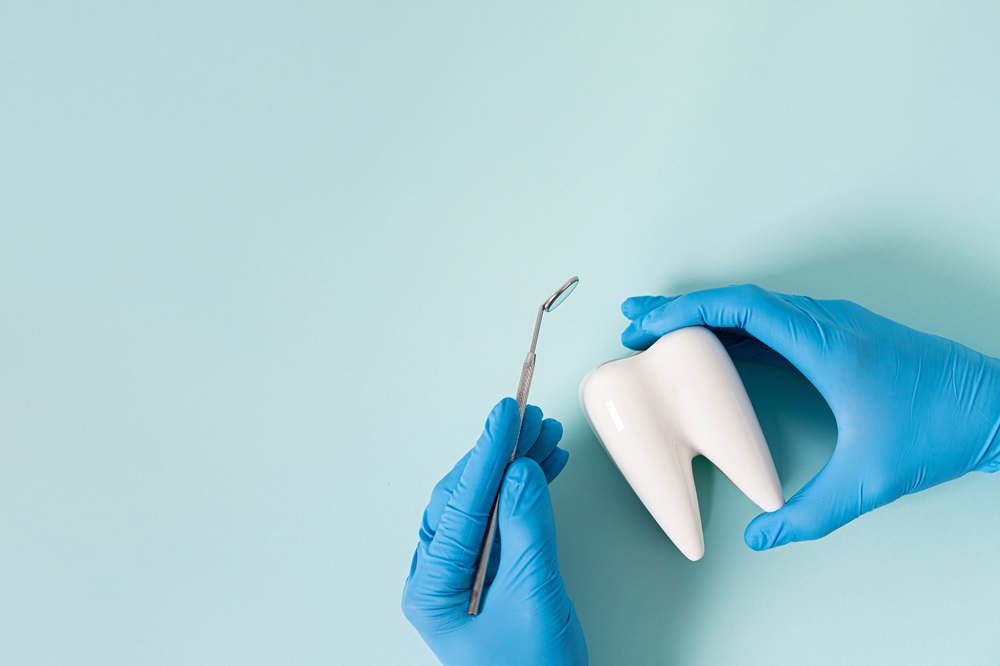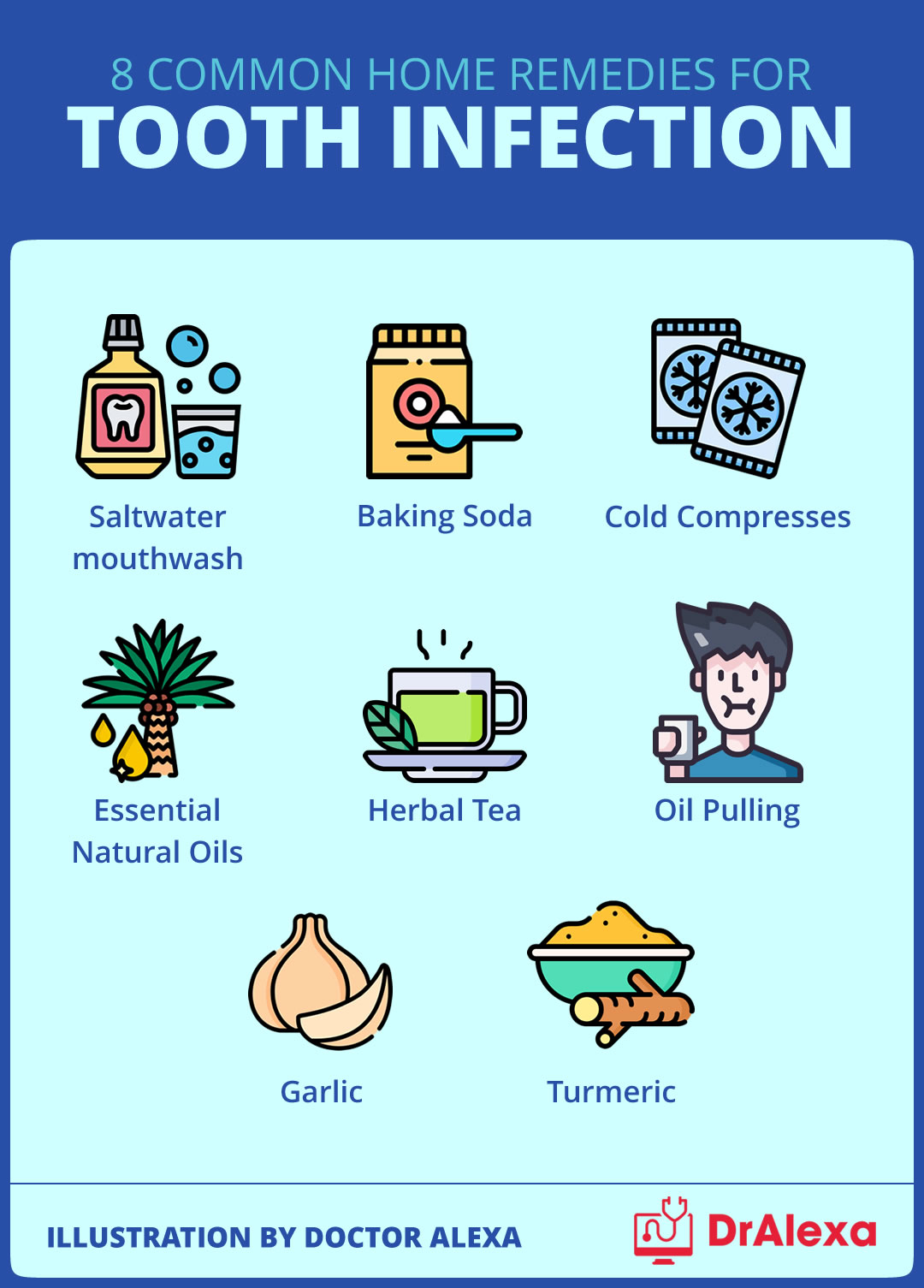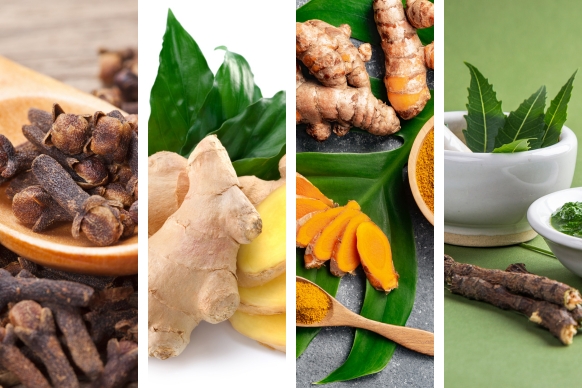Clove oil is the strongest natural antibiotic for tooth infections. It has potent antibacterial and anti-inflammatory properties that help alleviate pain and inflammation.
Other effective natural antibiotics include turmeric, tea tree oil, and garlic, which can be incorporated into your oral care routine to promote oral health. Tooth infections can be quite painful and uncomfortable, but these natural remedies offer a holistic approach to managing the symptoms and promoting healing.
By utilizing these powerful natural antibiotics, you can address tooth infections effectively and support a healthier oral environment without the need for harsh chemicals or antibiotics. Prioritizing natural remedies can offer relief and support oral health in a gentle and sustainable way.
Introduction To Natural Antibiotics For Tooth Infections
The Rising Interest In Herbal Remedies
Many people are turning to herbal remedies for various health issues, including dental problems. Natural antibiotics are gaining popularity due to their effectiveness and minimal side effects compared to conventional medications.
Why Consider Natural Antibiotics For Dental Issues?
- Natural antibiotics like clove oil, turmeric, tea tree oil, and garlic offer potent antibacterial properties.
- These remedies can help alleviate pain, inflammation, and infection associated with tooth infections.
- Using natural antibiotics can promote a healthier oral environment and reduce the need for harsh chemicals.

Credit: www.valleyridgedentalcentre.com
Clove Oil: Nature’s Pain Reliever
Nature’s pain reliever, clove oil, is a potent natural antibiotic for tooth infections. Its antibacterial and anti-inflammatory properties help alleviate pain and inflammation associated with tooth infections, promoting oral health. Incorporating clove oil into your oral care routine can provide relief and support a healthier mouth.
Clove Oil: Nature’s Pain Reliever Tooth infections can cause severe pain and discomfort, making it difficult to eat, sleep, and even talk. While antibiotics are commonly prescribed to treat tooth infections, some natural remedies can provide relief without the use of drugs. Clove oil is one such remedy, known for its analgesic properties that can help alleviate toothache and reduce inflammation. Analgesic Properties of Clove Oil Clove oil contains a compound called eugenol, which has potent analgesic properties. Eugenol works by numbing the nerves that transmit pain signals, providing relief from toothache and other types of pain. In addition to its analgesic properties, clove oil also has antibacterial and anti-inflammatory effects, making it an effective natural remedy for tooth infections. How to Apply Clove Oil for Tooth Infections There are several ways to use clove oil for tooth infections, depending on the severity of the infection and the desired level of relief. Here are some methods you can try: 1. Apply a small amount of clove oil directly to the affected tooth using a cotton swab or your finger. Be sure to dilute the clove oil with a carrier oil, such as coconut oil, to avoid irritation or burning sensation in your mouth. 2. Mix a few drops of clove oil with warm water and use it as a mouthwash. Swish the solution around your mouth for several minutes before spitting it out. 3. Add a few drops of clove oil to your toothpaste before brushing your teeth. This can help reduce inflammation and prevent further infection. 4. Soak a cotton ball in clove oil and place it on the affected tooth for several minutes. This method is particularly effective for severe toothache. In conclusion, clove oil is a natural pain reliever that can provide relief from tooth infections and other types of pain. Its analgesic, antibacterial, and anti-inflammatory properties make it an effective remedy for toothache and inflammation. By using clove oil as part of your oral care routine, you can promote a healthier and more resilient oral environment.
Garlic: The Power Of Allicin
When it comes to natural antibiotics for tooth infections, garlic stands out for its powerful compound, allicin. Allicin is known for its strong antibacterial properties, making it an effective remedy for combating tooth infections.
Antibacterial Effects Of Garlic
Garlic contains allicin, a bioactive compound with potent antibacterial properties. Allicin has been shown to inhibit the growth of various bacteria, including those responsible for causing tooth infections. Its ability to target and destroy harmful bacteria makes it a valuable natural antibiotic for oral health.
Simple Ways To Use Garlic Against Tooth Infections
Using garlic to address tooth infections can be as simple as incorporating it into your daily routine. Here are a few easy ways to harness the antibacterial power of garlic:
- Chewing raw garlic cloves releases allicin directly into the mouth, targeting the infection.
- Creating a garlic paste and applying it to the affected area can help combat the infection locally.
- Incorporating crushed garlic into your meals not only adds flavor but also contributes to fighting oral bacteria.
Turmeric: The Anti-inflammatory Giant
When it comes to natural remedies for tooth infection, turmeric stands out as a powerful anti-inflammatory giant. Its active compound, curcumin, has been shown to effectively reduce inflammation and combat oral infections. Incorporating turmeric into your oral care routine can help alleviate discomfort and promote oral health.
Curcumin In Turmeric For Reducing Inflammation
Turmeric contains an active compound called curcumin, which has potent anti-inflammatory properties. This natural substance has been found to effectively reduce inflammation in the body, including oral inflammation caused by tooth infections. Curcumin helps to alleviate pain and swelling associated with oral infections, making it a valuable natural remedy for toothache relief.
Creating Turmeric Pastes And Rinses
You can create turmeric pastes and rinses at home to harness its antibacterial and anti-inflammatory benefits. Making a turmeric paste using turmeric powder and water can provide a soothing topical application for the affected area. Additionally, rinsing with a turmeric mouthwash can help reduce oral inflammation and promote healing. These homemade turmeric remedies offer a natural and effective approach to combating tooth infections.
Tea Tree Oil: A Potent Antimicrobial
When it comes to natural remedies for tooth infections, tea tree oil stands out as a potent antimicrobial with impressive antibacterial and antifungal properties. Its effectiveness in combating oral pathogens makes it a popular choice for those seeking natural alternatives to traditional antibiotics.
Benefits Of Tea Tree Oil In Oral Health
Tea tree oil offers a range of benefits for oral health, making it a valuable addition to your dental care routine. Here are some of the key advantages:
- Antibacterial properties: Tea tree oil is known for its powerful antibacterial effects, which can help combat the bacteria responsible for tooth infections.
- Anti-inflammatory effects: It possesses anti-inflammatory properties that can help reduce swelling and discomfort associated with tooth infections.
- Antifungal properties: In addition to its antibacterial effects, tea tree oil also exhibits antifungal properties, making it effective against oral fungal infections.
- Natural alternative: For those looking to avoid synthetic antibiotics, tea tree oil provides a natural and holistic approach to managing tooth infections.
Guidelines For Safe Use Of Tea Tree Oil
While tea tree oil offers numerous benefits, it’s essential to use it safely to avoid any potential adverse effects. Here are some guidelines for the safe use of tea tree oil:
- Dilution: Always dilute tea tree oil with a carrier oil, such as coconut or olive oil, to minimize the risk of skin irritation.
- Patch test: Before using tea tree oil on your gums or mouth, perform a patch test on your skin to check for any allergic reactions.
- Avoid ingestion: Refrain from swallowing tea tree oil as it can be toxic if ingested. Use it for topical application only.
- Consultation: If you have any underlying health conditions or are pregnant, consult with a healthcare professional before using tea tree oil.
Salt Water Rinses: A Simple Solution
Dealing with a tooth infection can be a painful and distressing experience. While seeking professional dental care is crucial, there are natural remedies that can help alleviate the discomfort and aid in infection control. One such simple yet effective solution is salt water rinses.
How Salt Water Aids In Infection Control
Salt water has natural disinfectant properties that can help kill bacteria and reduce inflammation in the mouth. The osmotic effect of salt water can also help draw out the fluid from the swollen gums, providing relief from the discomfort associated with tooth infections.
Preparing An Effective Salt Water Rinse
Creating a salt water rinse is a simple and inexpensive process. All you need is a glass of warm water and a teaspoon of salt. Mix the salt in the water until it dissolves completely, and your natural and powerful antibacterial mouthwash is ready to use.
Propolis: The Bee’s Antibiotic
Unlock the power of natural antibiotics for tooth infections with Clove oil, turmeric, tea tree oil, and garlic. These potent remedies provide antibacterial and anti-inflammatory benefits to alleviate pain and promote oral health. Goldenseal tea is also recommended for its healing properties.
Propolis: The Bee’s Antibiotic Propolis is a natural antibiotic derived from bees. It is a resinous substance that bees collect from tree buds and sap flows. Bees use propolis to seal cracks and gaps in their hives and protect their hives from microbial invasions. Propolis has been used for centuries in traditional medicine for its antimicrobial properties. It contains various compounds, including flavonoids, phenolic acids, and terpenes, which give it its antimicrobial properties. Antimicrobial properties of propolis Propolis has been shown to have broad-spectrum antimicrobial properties, meaning it can kill a wide range of bacteria, viruses, and fungi. The flavonoids and phenolic acids in propolis have been found to be particularly effective against Streptococcus mutans, the bacteria responsible for tooth decay and cavities. Propolis has also been found to be effective against other oral pathogens, including Porphyromonas gingivalis, Aggregatibacter actinomycetemcomitans, and Fusobacterium nucleatum. Using propolis for dental care Propolis can be used as a natural remedy for various dental problems, including tooth infections. It can be used in various forms, including tinctures, extracts, and capsules. Propolis tinctures can be mixed with water and used as a mouthwash to help kill oral bacteria and reduce inflammation. Propolis capsules can be taken orally to boost the immune system and prevent infections. In conclusion, propolis is a natural antibiotic derived from bees that has been used for centuries in traditional medicine for its antimicrobial properties. It contains various compounds, including flavonoids, phenolic acids, and terpenes, which give it its antimicrobial properties. Propolis has been found to be particularly effective against Streptococcus mutans, the bacteria responsible for tooth decay and cavities. It can be used in various forms for dental care, including tinctures, extracts, and capsules, to help kill oral bacteria and reduce inflammation.
Goldenseal: The Less Known Herb
How Goldenseal Helps Fight Oral Bacteria
Goldenseal contains berberine, a compound with strong antimicrobial properties that can help combat oral bacteria causing tooth infections.
Brewing Goldenseal Tea For Toothache Relief
Brewing goldenseal tea is a simple way to harness its natural healing properties for toothache relief. Follow these steps:
- Boil water and add dried goldenseal root.
- Let it steep for 10-15 minutes.
- Strain the tea and allow it to cool.
- Swish the tea in your mouth for 30 seconds before spitting it out.
Combining Natural Remedies For Best Results
When it comes to treating a tooth infection, combining natural remedies can often yield the best results. By leveraging the potent antibacterial properties of various natural substances, you can effectively combat the infection and promote oral health. Effective combinations of natural antibiotics, as well as precautions and considerations in natural treatments, play a crucial role in ensuring optimal outcomes.
Effective Combinations Of Natural Antibiotics
Combining natural antibiotics such as clove oil, turmeric, tea tree oil, and garlic can create a powerful synergy to fight tooth infections. For instance, a mixture of clove oil and turmeric can provide both antibacterial and anti-inflammatory effects, helping to alleviate pain and reduce swelling. Similarly, incorporating tea tree oil and garlic can enhance the overall antibacterial potency, contributing to the eradication of harmful oral bacteria.
Precautions And Considerations In Natural Treatments
While natural remedies can be highly effective, it’s essential to exercise caution and consider certain factors when using them for treating tooth infections. Consulting with a healthcare professional is crucial to ensure that the chosen natural remedies are safe and suitable for your specific condition. Additionally, it’s important to be mindful of any potential allergic reactions or contraindications that may arise from the use of natural antibiotics. Moreover, maintaining good oral hygiene and regular dental check-ups should complement natural treatments to achieve comprehensive oral health.

Credit: www.ebay.com

Credit: doctoralexa.com
Frequently Asked Questions
What Is The Best Homemade Antibiotic For Tooth Infection?
Effective homemade antibiotics for tooth infections include clove oil, turmeric, tea tree oil, and garlic. These natural remedies help alleviate infections and promote oral health.
How To Get Rid Of A Tooth Infection Without Going To The Dentist?
Tooth infections require dental treatment. Ease symptoms with natural remedies like saltwater rinses, garlic, or essential oils.
Does Salt Draw Out An Infection In A Tooth?
Yes, a saltwater rinse can help draw out infection in a tooth by killing bacteria and breaking up pus.
What Can I Do If Tooth Pain Is Unbearable?
For unbearable tooth pain, try clove oil, turmeric, tea tree oil, and garlic as natural remedies. These can help alleviate pain and promote oral health. Additionally, consider medications, cold compresses, anti-inflammatory drugs, saltwater rinses, mouthwash, elevated sleeping position, and numbing ointments for temporary relief.
Seek a permanent solution for long-term comfort.
Conclusion
Natural antibiotics like clove oil, turmeric, tea tree oil, and garlic are powerful remedies for tooth infections. Incorporating these into your oral care routine can help alleviate infections and promote a healthier oral environment. Remember, nature provides effective solutions for dental health.


